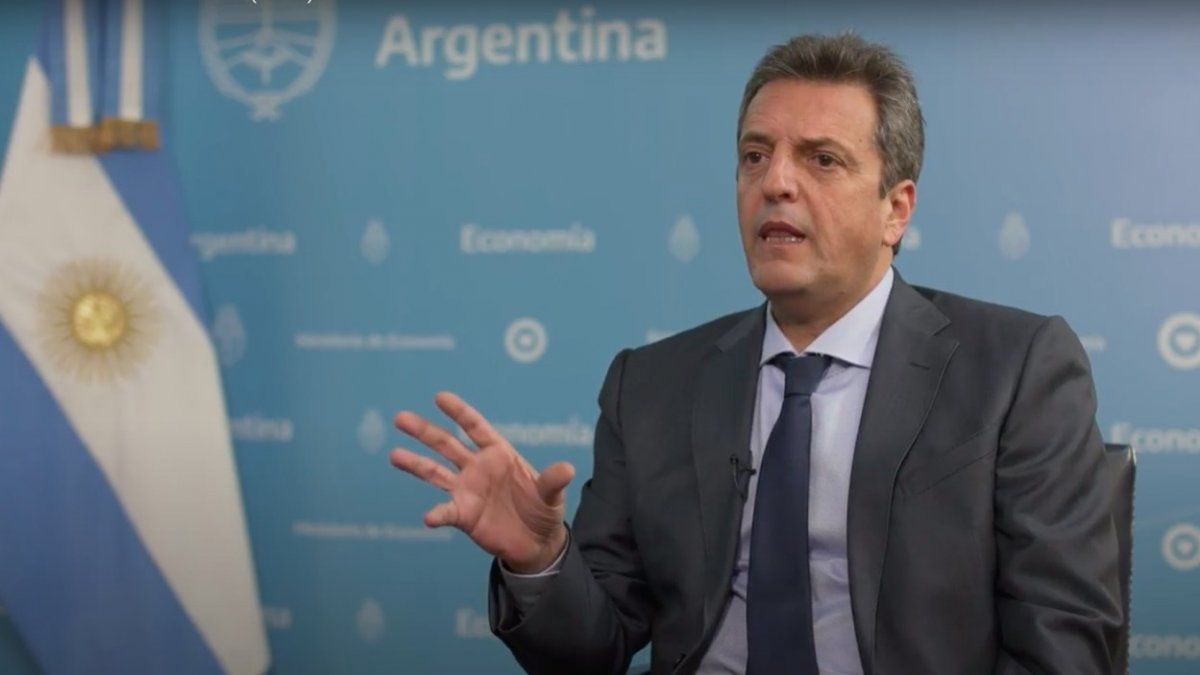Meanwhile, after the income of some 5,000 million dollars that triggered the “soybean dollar”, the coffers of the Central Bank were enlarged by the 700 million dollars that the Inter-American Development Bank disbursed last Thursday. In this way, and according to the methodological criteria of the International Monetary Fund, the stock of net reserves of the BCRA went from US$2,000 million at the end of August, to US$7,000 million at the end of September, exceeding the established goal by more than 1,000 million with the agency, according to the calculations of the Econometric consulting firm.
Despite the recomposition, the reserves remain scarce -equivalent to about a month of imports-.
One of the immediate concerns of the Palacio de Hacienda is the impact that the drought in agricultural production. Last week, both the Buenos Aires Cereal Exchange and the Rosario Exchange Wheat production forecasts cut again to some 15 million tons, a third less – about 8 million tons – compared to the previous campaign.
Although the higher prices of this cereal play in favor, the Buenos Aires Stock Exchange calculates that, considering current prices, the value of the wheat crop could be reduced by approximately 800 million dollarsalthough the figures are preliminary and the estimates continue to be biased downwards.
In general, meteorological forecasts anticipate the continuation of the drought – “La Niña” – from which It is already estimated that the harvest will fall about 6%, but it is warned that the decline could reach 21% if unfavorable conditions intensify, according to economist Marcos Buscaglia. However, other meteorological specialists anticipate that the effect of “La Niña” would not be so damaging.
This circumstance occurs at a time when the strengthening of the dollar in international markets tends to affect commodity prices. Although prices rebounded this year as a result of the war in Ukraine, the International Monetary Fund forecasts that non-energy raw materials fall 6.2% in 2023 (after a rise of 7.3% in 2022).
Weakness
Beyond the specific problems of the agricultural sector, Argentine exports will encounter a global context in which growth tends to weaken.
So much so that the International Monetary Fund warned in its latest World Economic Outlook report in October that “the worst is yet to come”, and that “For many, 2023 will feel like a recession.”
world growth would slow to 2.7% next year (after a 3.2% expansion calculated for the present) which would be the lowest since the 2.5% recorded during the 2001 global slowdown, Excluding the global financial crises and COVID-19 and below the historical average -3.6% during 2000 to 2021-.
The discouragement is shared by the main businessmen of the world. A recent survey carried out by the consulting firm KPMGreveals that 91% of CEOs They forecast a recession in the United States in the next 12 months.
The greatest cooling of the economy will take place in Europe, an area that would grow only 0.5% next year, according to the IMF. Worse yet, some countries such as Germany and Italy would fall (0.3% and 0.2%, respectively).
China is also moving away from the high rates it was able to achieve years ago – in 2023 it would grow “only” 4.4%- with risks such as the deep crisis experienced by real estate activity – veins fall by 40% compared to last year-, a sector that represents a third of the Asian giant’s GDP.
In short, the expected growth for Argentina’s main trading partners in 2023 was adjusted to 2.4% compared to the 3.5% estimated in Aprilaccording to calculations by the consulting firm Ecolatina, while the expansion of the members of Mercosur would be just 1.2% (vs 1.5% in April).
threats
Added to the difficulties of the context are different threats. The Abeceb consultancy highlights three: monetary tightening carried out by the main central banks of the world is causing more concern than before, the gas crisis is longer than expected and to this are added US-China geopolitical tensions over the island of Taiwan.
Precisely these issues will be debated in a forum organized by Abceb for November 1, which will include, among other speakers, the presence of the Harvard professor Richard Hausman who will speak about the changes in the business climate.
In the immediate term, the commitment with the Fund contemplates that the stock of net reserves should exceed 7,300 million dollars by the end of the year. Although the new goal is only USD300 million additional to what the BCRA managed to accumulate after the “soybean dollar“, it will not be easy for the Government to fulfill itin accordance with Econometric.
In this regard, he points out four factors: a large part of agricultural exports have already been advanced, the poor wheat harvest that will reduce exports in the last weeks of the year, the deficit of some USD 800 million per month generated by tourism and finally the weight of imports.
In this regard, it is pointed out that after the quota that the BCRA imposed in the middle of the year on companies to access the foreign exchange market to pay for their imports, a commercial debt with foreign suppliers for more than USD6,500 million was generated in a short time. , an amount equivalent to the financing of one month of imports. This commercial credit, which the government itself requested to be for 180 days, in many cases begins to be paid from November.
Hence it is concluded that restrictions on imports “will not only continue but will be amplified.”
Regarding the prospects for next year, the conclusion of Ecolatina is that “the expected deterioration in the performance of the world economy It will make the Government’s roadmap and the stability of the foreign exchange market for 2023 more challenging and complex.”
In this regard, he recalls that the reserve accumulation goal committed to by the IMF will be even more demanding than this year’s and considers that the construction of the gas pipeline Nestor Kirchner It will be essential to avoid a greater bleeding of foreign currency through payments for energy imports, “to think that the restrictions on imports will continue to operate during this period.”
Source: Ambito
David William is a talented author who has made a name for himself in the world of writing. He is a professional author who writes on a wide range of topics, from general interest to opinion news. David is currently working as a writer at 24 hours worlds where he brings his unique perspective and in-depth research to his articles, making them both informative and engaging.




